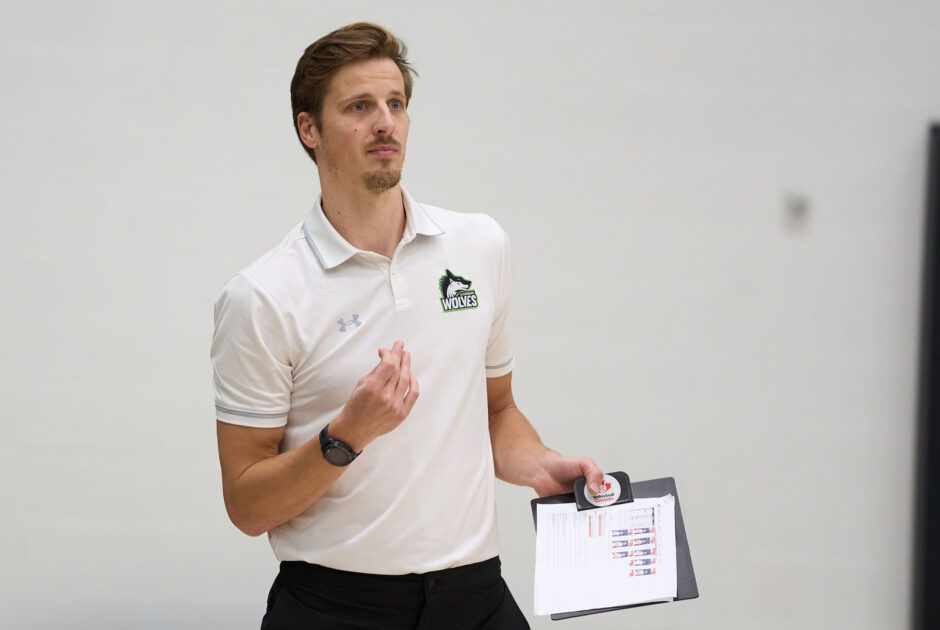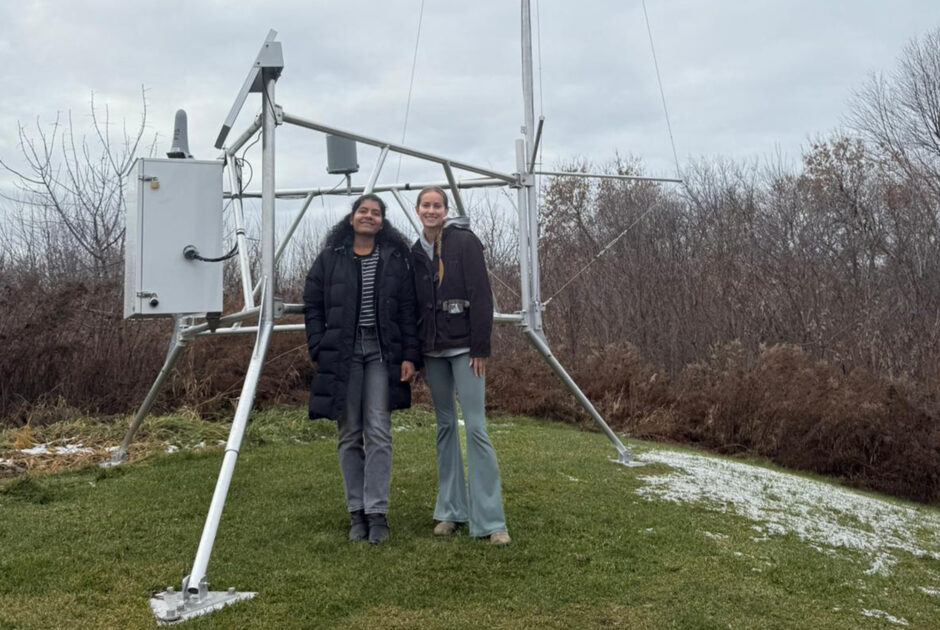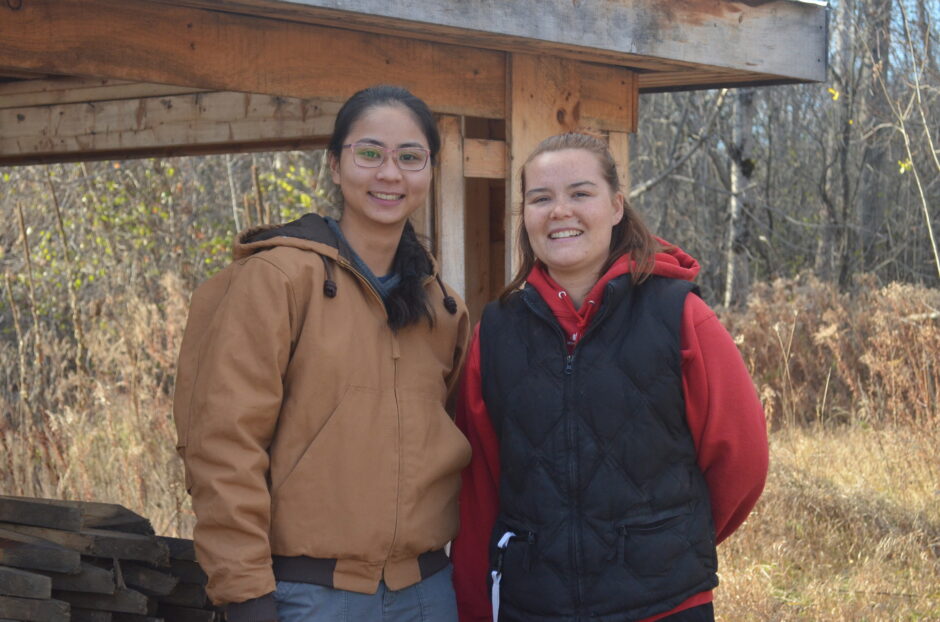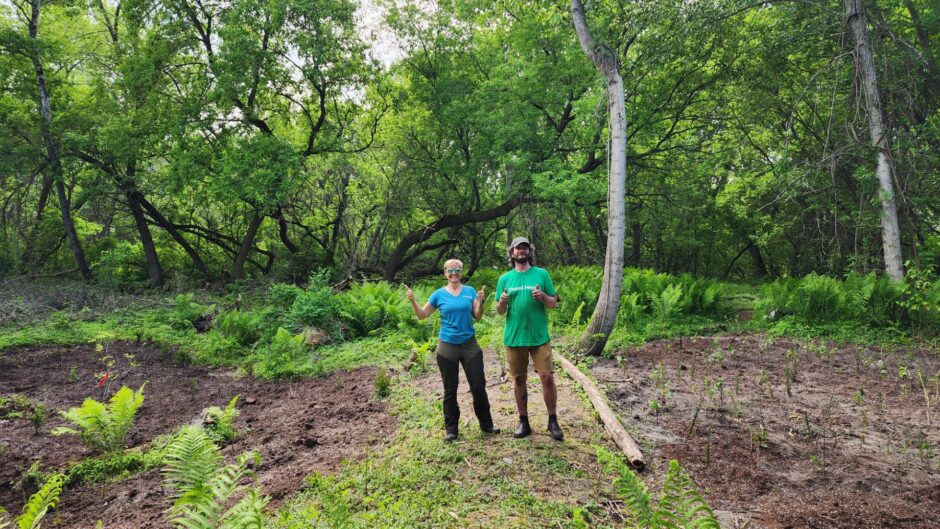Dietician notices ‘people don’t eat enough,’ leads cooking workshop at college
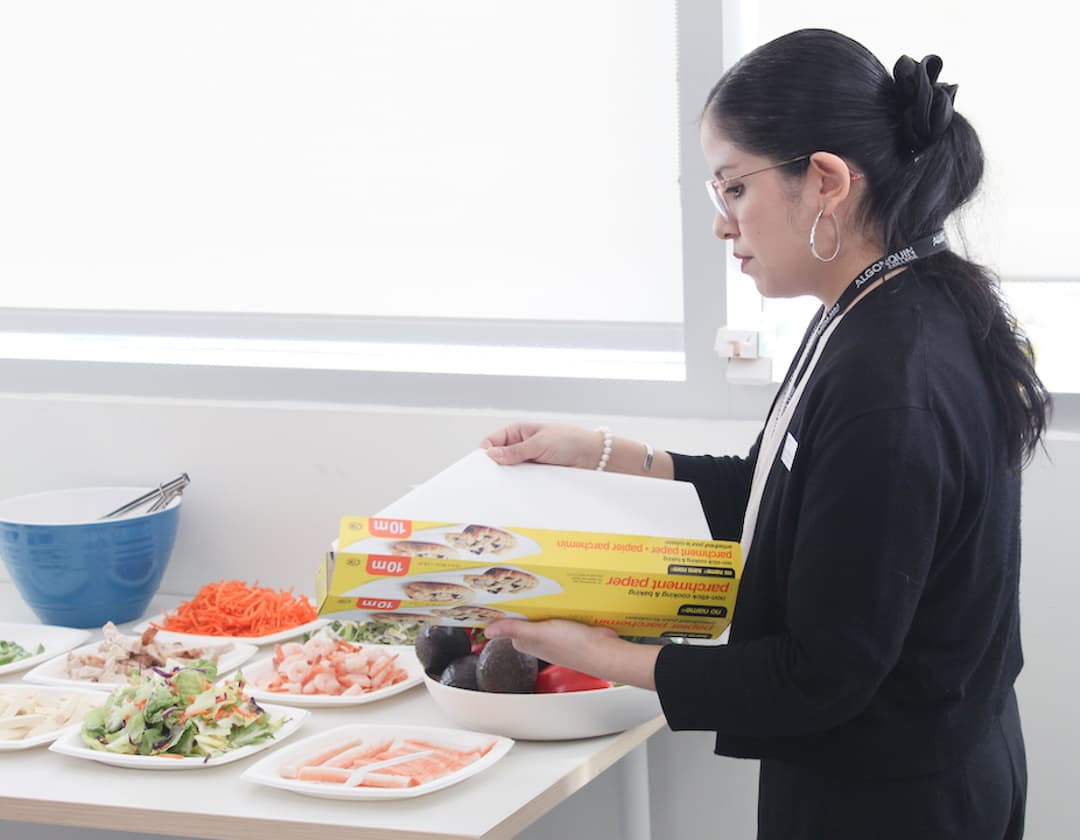
Health Services celebrated Nutrition Month with a cooking workshop and invited registered dietitian Tatiana Hunt to be the host.
The March 21 workshop on the third floor of the E-building was attended by students who were either looking for a good snack or who were interested in learning more about leading a healthy lifestyle.
With Hunt’s guidance, students made their own spring rolls with a multitude of ingredients to choose from.
Hunt highlighted the importance of teaching students to put a high priority on living a long and healthy life.
“So that you can live a life well, you want to make sure that you are getting adequate nutrients to support a healthy lifestyle,” said Hunt.
Elizabeth Peña Fernandez, a health promotion coordinator and a key organizer of this event, said that the college is also aware of how effective these workshops can be and how students’ lack of time or knowledge on how to eat well might negatively affect their eating habits.
“Sometimes students struggle a little bit to have a proper and balanced meal. There are different factors that interfere in that, whether that be an economic factor, a time factor or a knowledge factor,” said Fernandez.
“Sometimes students probably want to eat a balanced meal, but they don’t know exactly how to do that, that is why here in the college we try to provide resources to cover these factors in different ways and with different workshops.”
Nader Ibrahim, a business fundamentals student at the college, explained what drew him to the workshop and how his academic commitments have affected his eating habits.
“I was passing by and I smelt the food and I’ll be real with you, I haven’t had a decent meal in about two or three weeks. To eat something that is somewhat healthy kind of made my day a whole better and made up for the five days of not eating very well,” said Ibrahim.
The biggest discovery Hunt has made since beginning her career is that there is a definite sign that people are not getting the necessary sustenance they need.
“People don’t eat enough. I think diet culture is telling people to eat less and to live in a smaller body and then it has the opposite effect where your body goes into starvation for whatever you eat it will hold on to and store as fat,” said Hunt.





